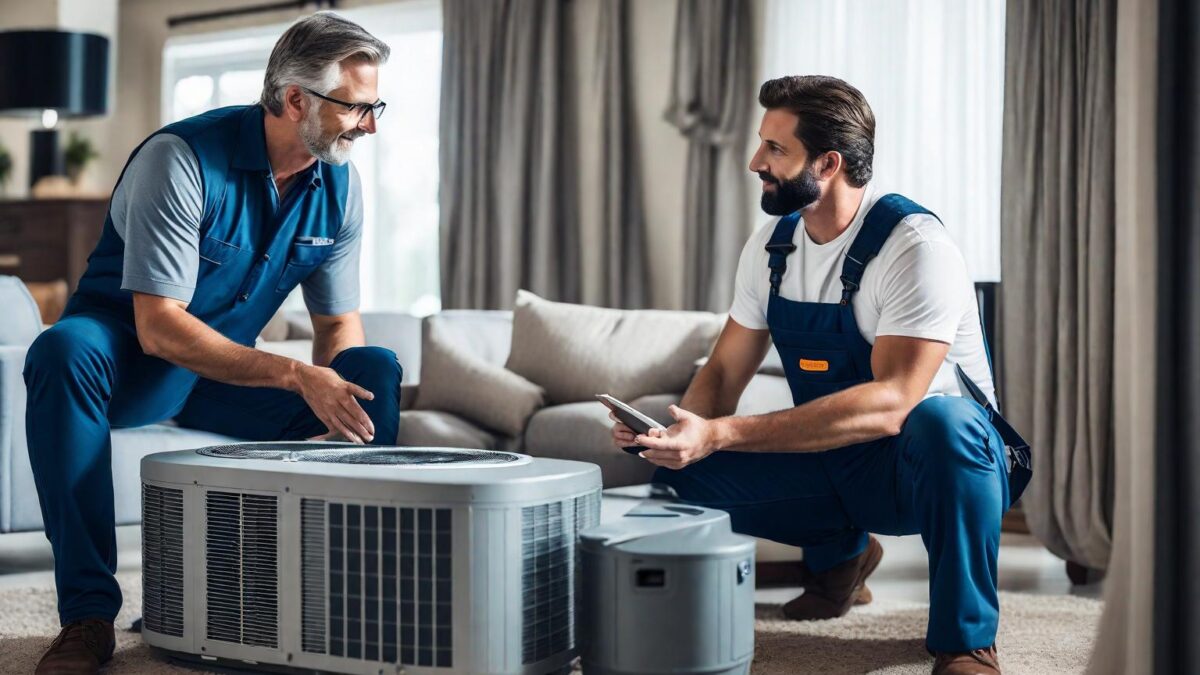Choosing the Right Heat Pump for Your Home

Tips to Find the Right HVAC Service Provider
October 9, 2023
Big Rebates on Heat Pumps: Save Up to $7,100 with Greener Homes Grant!
October 12, 2023Choosing the Right Heat Pump for Your Home
Choosing the Right Heat Pump for Your Home
As the seasons change and temperatures fluctuate, homeowners often find themselves considering the best heating and cooling solutions for their homes. Heat pumps have gained popularity in recent years due to their energy efficiency and versatility. Whether you're looking to replace an old heating system or upgrade your home's cooling capabilities, choosing the right heat pump is essential. Here's a guide to help you make an informed decision.
Understanding Heat Pumps
Before we dive into choosing the right heat pump, let's understand what a heat pump is and how it works. Heat pumps are HVAC systems that provide both heating and cooling by moving heat between the indoor and outdoor environments. They operate on the principle of transferring heat rather than generating it, making them highly efficient.
Heat pumps have two main components: an indoor unit (evaporator) and an outdoor unit (condenser). During the winter, the system extracts heat from the outdoor air and transfers it inside to heat your home. In the summer, it reverses the process, removing heat from indoor air and releasing it outside to cool your home.
Factors to Consider
Choosing the right heat pump involves considering several key factors:
1. Climate Zone
Your location plays a significant role in determining the type of heat pump that's suitable for your home. Different heat pumps are designed for various climate zones. If you live in a region with extreme cold temperatures, you'll need a heat pump specifically designed for cold climates to ensure optimal performance.
2. Size and Capacity
Selecting the right size and capacity is crucial for efficiency and comfort. An undersized heat pump may struggle to heat or cool your home adequately, while an oversized one can lead to short cycling and energy wastage. Consult with a professional HVAC technician to determine the appropriate size for your home.
3. Energy Efficiency
Look for heat pumps with high Energy Efficiency Ratings (EER) and Seasonal Energy Efficiency Ratios (SEER). These ratings indicate how efficiently the system operates. Higher numbers mean better energy efficiency and potential energy savings.
4. Heat Pump Type
There are different types of heat pumps, including air-source, ground-source (geothermal), and ductless mini-split systems. Each has its advantages and limitations. Consider your home's layout, budget, and specific heating and cooling needs when choosing the type of heat pump.
5. Installation and Maintenance
Proper installation by a qualified technician is critical for the heat pump's performance. Additionally, regular maintenance ensures longevity and efficiency. Factor in installation and maintenance costs when budgeting for your new heat pump.
6. Budget
Heat pump prices can vary widely depending on factors such as brand, model, capacity, and features. Establish a budget that accounts for the initial purchase and installation costs, as well as long-term operating expenses. Rebates are here on heat pump, for more details call Alliance Energy Source. Your nearest HVAC service provider.

